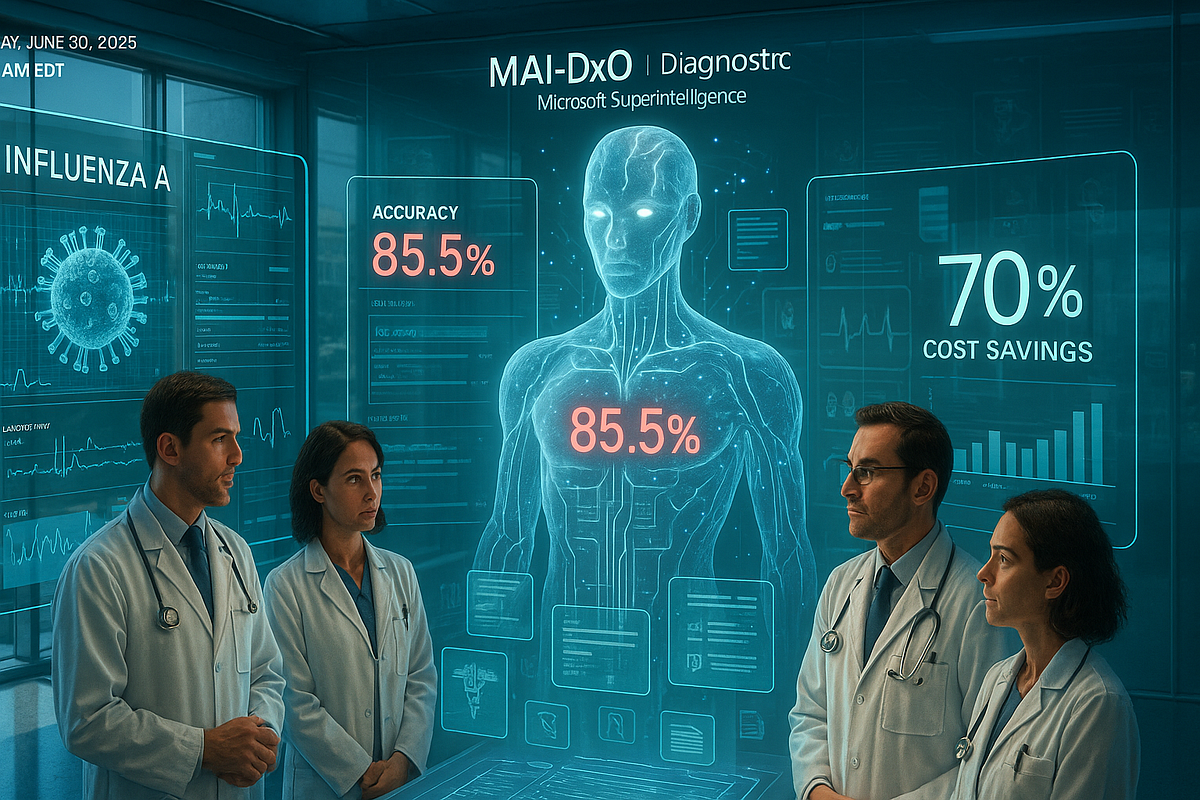In a major reveal today, global tech giant Microsoft announced the development of an artificial intelligence tool—called the Microsoft AI Diagnostic Orchestrator (MAI‑DxO)—that it says can diagnose “diagnostically complex and intellectually demanding” medical cases with four times greater accuracy than a panel of human physicians
The system, led by Mustafa Suleyman, CEO of Microsoft AI, achieved an impressive 80–85 percent success rate on 304 case studies sourced from the New England Journal of Medicine, compared to a mere 20 percent accuracy from doctors who were not allowed to consult peers or reference materials during the trial
MAI‑DxO mimics a virtual panel of experts, leveraging a “chain-of-debate” approach to orchestrate multiple leading AI models—such as OpenAI’s GPT‑o3, Google’s Gemini, Meta’s Llama, Anthropic’s Claude, and xAI’s Grok—to collaboratively analyse symptoms, ask follow-up questions, and decide on cost-effective tests
Beyond pinpoint accuracy, Microsoft claims the tool achieved a 20 percent reduction in diagnostic costs by choosing more efficient test pathways
While Suleyman hailed the breakthrough as a “genuine step towards medical superintelligence,” experts stress that findings must still be validated in real-world clinical settings, where doctors normally have access to reference material and collaborative input
Both Microsoft and independent analysts note that peer-review and actual clinical trials will be vital to confirm performance, safety, and cost-efficiency before any practical deployment .
Although Microsoft has not yet announced commercial plans, officials suggested integration into existing platforms—like Bing or Copilot—could follow as the company expands real-world testing with health systems
For now, MAI‑DxO remains an experimental but extremely promising technology, reflecting Microsoft’s ambition to reshape healthcare delivery by augmenting doctor expertise and reducing misdiagnosis and unnecessary costs.
This evolving story, especially once the system enters clinical trials or regulatory review. The shift towards medical superintelligence could signal one of the most transformative changes in modern Nigerian and global healthcare.

